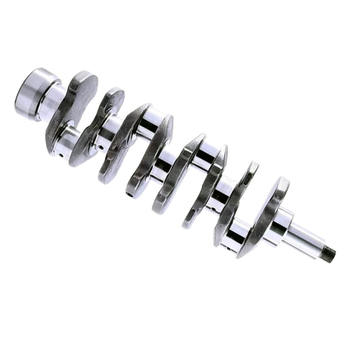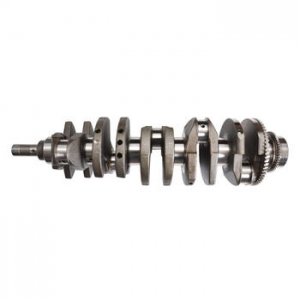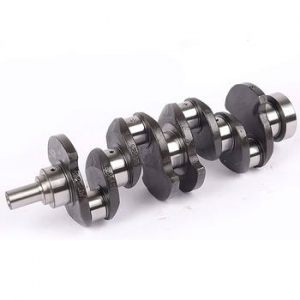Introduction: The Importance of Crankshaft Health
The crankshaft is a vital component in any engine, converting the reciprocating motion of the pistons into rotational motion that ultimately drives your vehicle. However, crankshaft failure can lead to significant engine damage and costly repairs. In this article, we'll explore the root causes of crankshaft failure and provide practical tips for prevention.
Common Causes of Crankshaft Failure
Improper Lubrication
Arguably the most common cause of crankshaft failure is insufficient lubrication. As it turns out, the crankshaft relies heavily on oil to reduce friction and wear. Without proper lubrication, metal-on-metal contact can occur, leading to excessive heat and eventual failure.
Overloading the Engine
Engines have limits, and pushing them beyond their capacity can result in crankshaft failure. Overloading can occur due to towing heavy loads, excessive engine RPMs, or even driving uphill for extended periods. Interestingly enough, modern engines are designed with safety features to prevent overloading, but these can sometimes be overridden or fail altogether.
Material Fatigue and Defects
Crankshafts are typically made from high-strength steel alloys to withstand the stress and strain of engine operation. However, even these materials have their limits. Over time, the crankshaft can suffer from metal fatigue, causing it to weaken and eventually fail. Moreover, manufacturing defects or poor-quality materials can exacerbate this issue.
Prevention: Keeping Your Crankshaft in Top Shape
Regular Oil Changes and Maintenance
One of the best ways to prevent crankshaft failure is to adhere to a strict oil change schedule. This ensures that your engine always has fresh, clean oil to lubricate its components. Additionally, regular maintenance can help identify potential issues before they become catastrophic.
Avoid Overloading Your Engine
Be mindful of your engine's limitations and avoid pushing it beyond its capacity. This might mean taking breaks during long uphill drives or investing in a vehicle better suited to towing heavy loads. In my experience, a little caution can go a long way in preventing crankshaft failure.
Pay Attention to Warning Signs
Crankshaft issues often present themselves through unusual noises, vibrations, or even visible smoke. If you notice any of these symptoms, don't ignore them! It's crucial to have your vehicle inspected by a professional as soon as possible to prevent further damage.
Conclusion: Investing in Engine Health
Understanding the root causes of crankshaft failure and taking preventive measures can save you from costly repairs and extended vehicle downtime. By adhering to a regular maintenance schedule, avoiding overloads, and staying vigilant for warning signs, you can keep your engine running smoothly for years to come. So, what are you waiting for? Schedule your next oil change today!




